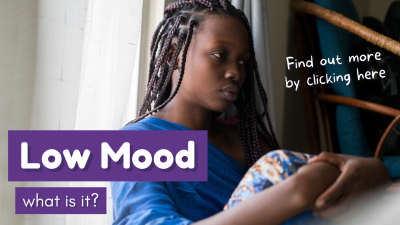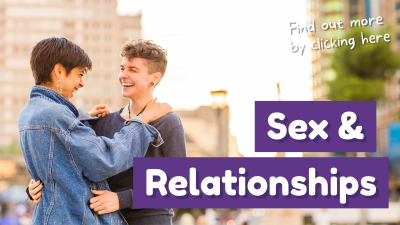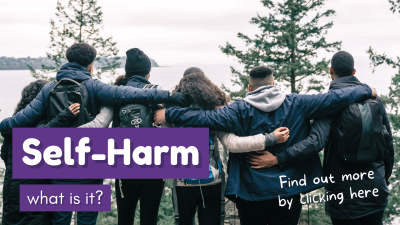Youth Homelessness & Mental Health
Youth Homelessness & Mental Health
Read on to learn about youth homelessness, how this can affect mental health and wellbeing, and where to find support.

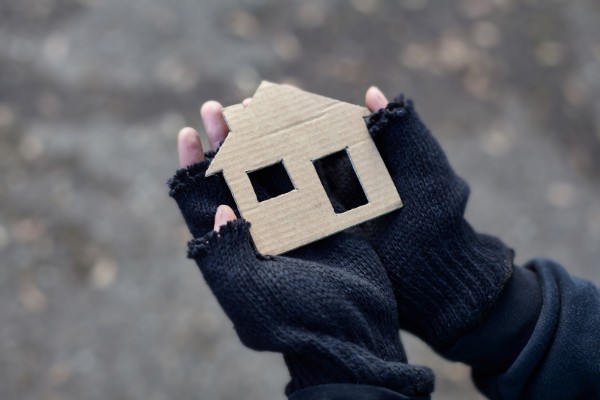
What is Homelessness?
When someone doesn’t have a secure home that they feel safe in, they are considered homeless. There are a number of reasons someone becomes homeless, many of which are out of their control.
Shelter estimates there are 274,000 homeless people in the UK. Unfortunately, homelessness is a major local issue in Sussex and young people are at a particularly high risk of homelessness.
Not all people that are homeless are 'rough sleeping' (sleeping on the street). These people with instable living situations are sometimes referred to as the 'hidden homeless'.
Some young people affected by homelessness find that their situation can impact their mental health.
Read on to learn more about why youth homelessness can happen.
Why does youth homelessness happen?
There are many things that can affect youth wellbeing, and could result in homelessness. Some young people may become, or be at risk of becoming homeless due to a family or relationship breakdown, issues with money, leaving care, substance misuse, or a number of other reasons.
Everyone’s experience is valid; no matter what the circumstances are behind someone’s homelessness, everyone deserves a safe and secure home.
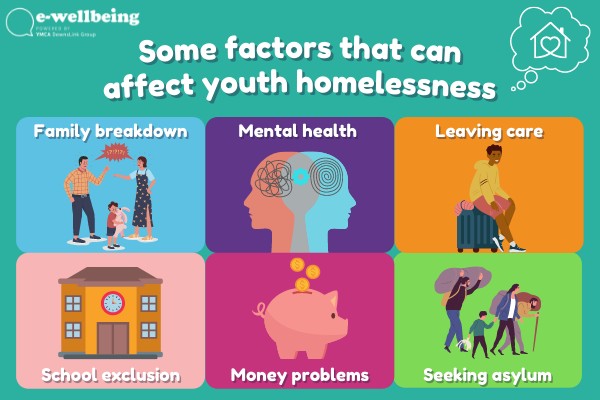
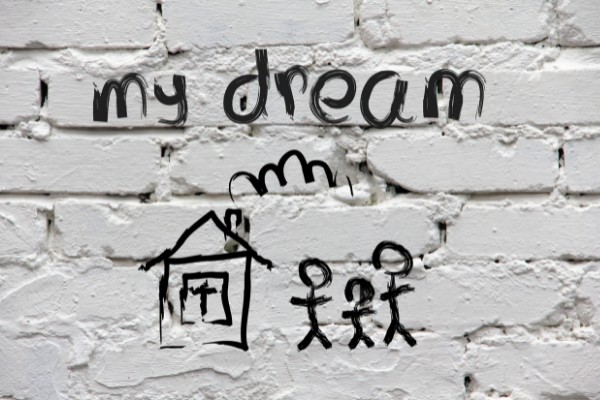
What does ‘hidden homeless’ mean?
People can still be homeless even if they currently have a roof over their head. Many will experience unstable living situations and be without adequate protection in their current place of home (for example, a tenancy agreement). Being homeless doesn’t mean that the person affected has done something to deserve it; everyone has the right to a safe place to live.
Read on to learn more about how 'hidden homelessness' can be experienced.
A young person may be part of the ‘hidden homeless’ if they are:
- Staying in temporary accommodation (like a night shelter, refuge, hostel, hotel or B&B)
- Temporarily staying with family and friends (sometimes known as 'sofa-surfing')
- Having to live apart from family because they have no place to stay together
- Living in unsafe conditions that impact their health (e.g. the house is extremely dirty or doesn’t have access to water)
- Living in a place where they are at risk of violence or abuse
- Squatting (deliberately entering a property without permission with the intention of living in it)
If you feel any of the above applies to you, or someone you know, you are not alone, and help is available. You can scroll down to find support, search for services in your local area here, or get urgent help here.

Do I need some help?
Experiencing difficulties at home can really affect our wellbeing, and could put us at risk of becoming homeless. Remember: you are not alone, and help is out there.
Take a look at these statements and tick any that feel relevant to you. To find practical advice and where to find support, scroll down to read more of this module.

Getting help if you're homeless or at risk
If you are faced with homelessness, there is lots of help available to give you advice and support. If you can, it’s important to seek help as soon as possible so that arrangements can be made to support you.
If you, or someone else, is in immediate danger, call 999 or go to your nearest A&E and someone will help you.
YMCA DownsLink Group works with local councils, social services, and other statutory or voluntary agencies, to prevent youth homelessness across Sussex and Surrey.
Our Youth Advice Centres (YAC for short!) in Brighton and Crawley provide a safe space for young people, and offer a wide range of advice and support based on their needs. Watch this video to hear from other young people who have experienced homelessness, and how they found the right support for them.
What can lead to Youth Homelessness?
Read on to learn more about why a young person may become homeless, and find out what support is available.
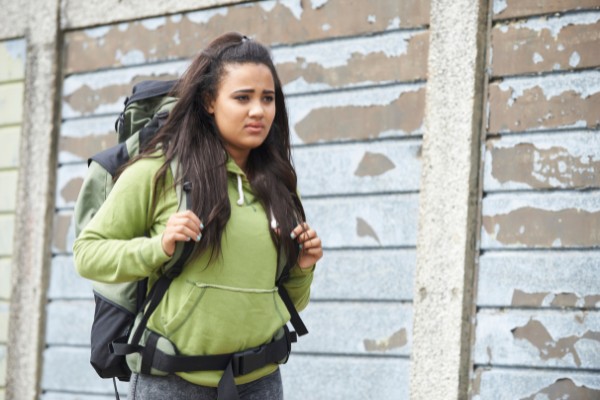
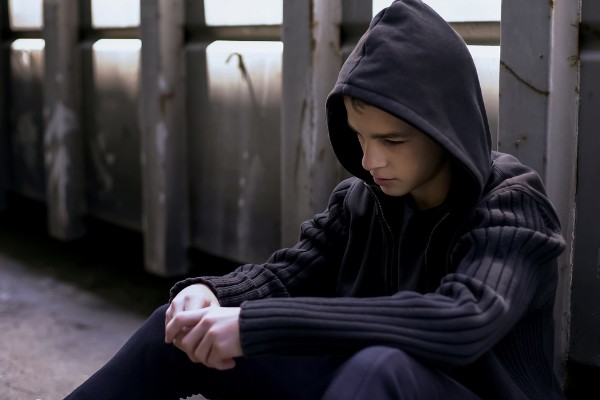
Why do young people become homeless?
In the previous section, we explored how a young person’s mental health can be affected by homelessness. We all experience things in different ways, and this also includes the reasons why a person may become homeless.
While these are just a few examples, some factors that can lead to youth homelessness are family or relationship breakdown, money issues, seeking asylum, leaving care, school exclusion, and mental health difficulties.
Read on to learn more about how these situations may be experienced, then scroll down to find advice and support.
Family or relationship breakdown
There are many reasons that could lead to a young person leaving home. Sometimes, a young person may have no other choice but to leave; this could be due to being told to leave, arguments with parents, step-parents, or carers, or due to fearing for their safety in the home. A young person may be experiencing, or at risk of abuse from others in the home, and becoming homeless could seem like a safer option for them.
Leaving home can be a difficult decision, and may lead to other issues if arrangements to stay elsewhere haven’t been made. However, there is a wide range of support available to help young people facing homelessness due to family or relationship breakdown.
Watch this video to hear from Becky about her experience of family breakdown, and how YMCA Dialogue helped her through this.
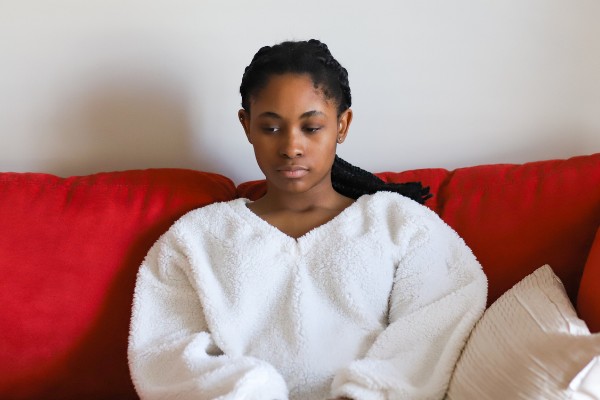

Money issues
Many of us can struggle with our finances, particularly from issues like losing a job, the increased cost of living, and the impact of COVID-19. This in turn can affect our living situation, as paying for accommodation becomes more difficult. Experiencing uncertainty about money can feel overwhelming, and can impact a young person’s mental wellbeing.
If you are struggling with money and you’re not sure what to do, there are lots of places that can help.
Scroll down to find out more!
Where to find support if you're struggling with money...
Citizen’s Advice – get free, independent advice about money, debt management and other legal issues
- Call their free national Adviceline (England) on 0800 144 8848 (9am-5pm, Monday to Friday
- Talk to a trained adviser online
- Or find your local Citizen’s Advice centre here
StepChange – offering free, expert advice about debt and a wide range of practical solutions and services
- Call their free helpline on 0800 138 111 (8am-8pm Monday to Friday, and 8am-4pm on Saturday)
- Get help via their webchat
- Or use their online debt advice tool
You can also find more information and advice about money management via The Mix and The Children’s Society.
Leaving care
A young person leaving care may be at risk of homelessness for a number of reasons. If they have grown up in care, they may be unsure about how to cope with the challenges of living independently, and this could prevent them for finding a safe place to live.
It can be difficult to know where to start when leaving care, and it can be hard to know how to access education or employment, look after finances, or build healthy relationships.
Brighton & Hove City Council have created a Local Offer, which includes advice about financial support, accommodation, participation in society, and more. Find out more here!
You can also find support and advice from Become, a charity offering a Care Advice Line, coaching, and virtual social opportunities through their Weekly Link-Ups.
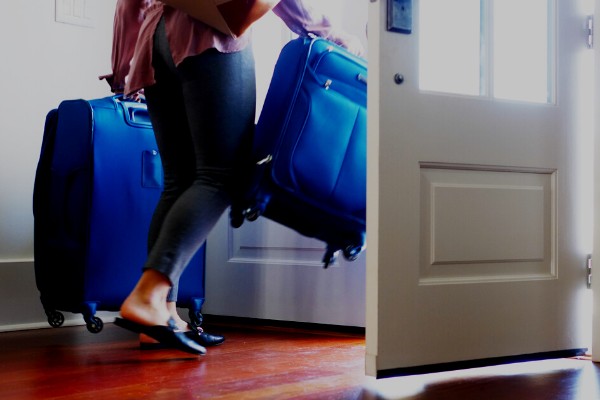

Seeking asylum
'Asylum seekers’ or ‘refugees’ are people that have left the country they were living in to escape harm (for example, due to war, poverty, racism, or religious or political persecution) and have entered another country in the hope of being able to live there.
Being an asylum seeker can be very difficult, as the process to find out if you’re able to live in a country can take a long time. During the application process, people seeking asylum are often not eligible for much financial or housing support, and normally aren’t allowed to work. This puts asylum seekers, especially young people, at a high risk of homelessness.
If you are a young refugee in Sussex, you can find support from The Hummingbird Project through their Global Social Club, Learning Space, and 1-1 support.
You can also find help from Voices in Exile, who offer support through their Advice Lines, peer-support groups, and food bank.
Exclusion from school
Sometimes young people are excluded from education, this can be for many different reasons and isn’t always due to bad behaviour.
If a young person is having difficulty with housing or their home life, it can feel difficult to be at school or college, or to attend altogether. This can lead to being excluded from school, which can put the young person at risk of homelessness because the issues they may be facing are less likely to be noticed by staff at the school who would be able to help.
If you’re finding it difficult to attend school or college, you are not alone. You could try reaching out to an adult you feel comfortable with (for example, a parent, youth worker, or teacher). If you’re not sure who to talk to, you can find lots of helpful advice and resources here, through Young Minds, and on our Schools Page.
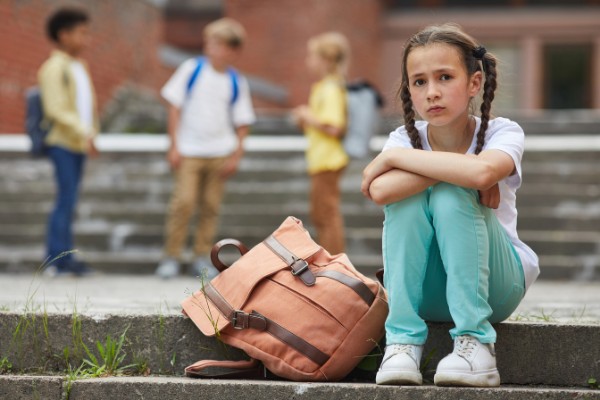

Mental health difficulties
Sometimes a young person’s mental health difficulties can lead them to homelessness. For example, many of us can struggle with anxiety or low mood, while others may experience mental health conditions such as bipolar or depression.
If a young person is struggling with their mental health and doesn’t get the help they need, this can have an impact on their wellbeing. It could lead to things such as substance misuse, getting involved in gang crime, or other risky behaviour, which could put the young person at risk of becoming homeless.
Scroll down for where to find mental health advice and support.
If you're struggling with your mental health...
Experiencing mental health difficulties can make a young person feel misunderstood or less able to think clearly. It can also put us at risk of harming ourselves, or having thoughts of suicide. If you, or someone you know, is thinking of self-harm or wanting to die, you are not alone, and help is out there.
If there is immediate risk of harm, call 999 or go to your nearest A&E and someone will help you. For other urgent help, you can contact Samaritans, HOPELINEUK, or find other services on our Crisis Page. You can also find more information and support here.
REMEMBER: your mental health matters, and your feelings are valid.
Jack's Story
A few years ago, Jack was struggling with his mental health, which led to substance misuse and intermittent homelessness. However, once he reached out for support from YMCA DownsLink Group, he was able to find the help he needed to move forward with his life.
Watch this video to hear Jack's story about his experience of youth homelessness and mental health.

How can I access support for homelessness?
There are lots of ways to access support for homelessness, some of which depend on your age or where you live. Read on to learn more...

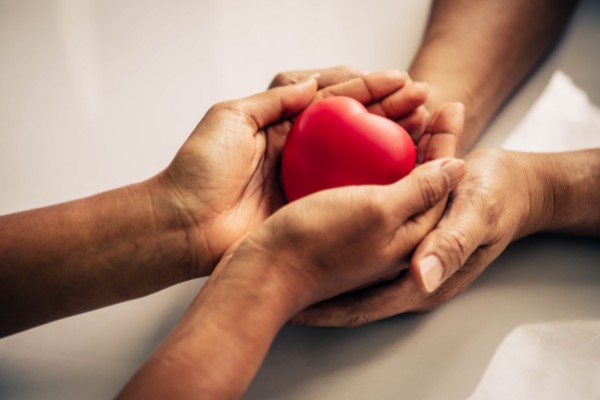
Where to access support
There are lots of different ways to get support, depending on your age and situation. These services include youth advice centres, your local council, and charities specialising in support for youth homelessness.
Read on to find a list of services and what they offer in Brighton & Hove, East Sussex, and West Sussex, as well as a selection of National services offering support.
Brighton & Hove services
- YMCA DownsLink Group support young people in Sussex and Surrey who are facing homelessness. You can learn more about the work we do here
- Our Youth Advice Centre (known as YAC) will be able to talk you through options and give advice on your next steps if you’re 16-25
- You can access Brighton & Hove Council’s list of support here, including how to make a referral to their housing team
- The Clock Tower Sanctuary offer a range of practical and emotional support to 16-25 year olds experiencing homelessness or rough sleeping
- You can also access FirstBase, a day-centre that offers lots of support services to homeless people in the city
- If you require healthcare support, Arch Healthcare is an NHS service that specifically support the homeless in Brighton and Hove
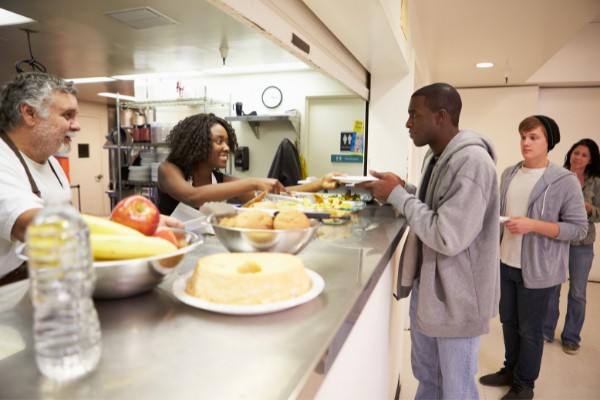

East Sussex services
- YMCA DownsLink Group has a range of services, including youth clubs, supported and independent living accommodation, and our Schools Homelessness Prevent Project. These services can be accessed by young people in Eastbourne and Hailsham
- If you are under 16 and live in East Sussex you should visit this site here for housing advice or contact the Children’s Services Single Point of Advice (SPOA) on 01323 464 222
- If you need some help at weekends or late in the evening, you can contact the East Sussex Emergency Duty Service on 01273 335 905
- If you are over 16 and experiencing homelessness in East Sussex, you can contact your local council for advice and support
- SeaView are based in St. Leonards-on-Sea and work to support the homeless in Hastings
West Sussex services
- YMCA DownsLink Group’s Worthing Foyer offers affordable, high-quality accommodation for young people aged 16-25 who are in need of housing. Find out more here
- If you are 16 or 17 and live in West Sussex, you can access support and advice from your local FindItOut Centre, or contact the Youth Homeless Prevention Team directly on 033 022 24711
- If you live in West Sussex and are over 18 you can click here for information about hostel accommodation in West Sussex, or find support through your local council
- Turning Tides provide a range of homeless support services in Adur and Worthing, Littlehampton, Horsham District and Mid Sussex
- Stonepillow provide support to the homeless in Bognor Regis and Chichester
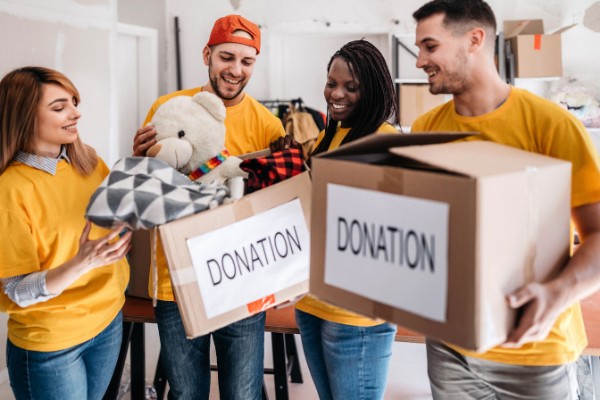

National services
- Shelter- a charity that provides a range of support and advice for anyone facing or experiencing homelessness
- Turn2Us- a charity that helps people in financial need to access information and advice about benefits and other financial help
- CentrePoint- providing homeless young people with accommodation, health support and life skills
- Buttle UK- a charity dedicated to helping children and young people in crisis in the UK
- The Prince’s Trust- a charity helping 11–30-year-olds to find the tools and confidence to try free courses and start careers

Get Help
If you are experiencing homelessness, or you are a risk of becoming homeless, it's OK to reach out for help.
There are lots of services in this module that can offer support, including YMCA DownsLink Group, your local council, and Shelter.
You can find mental health support in your local area on our Services Page, or for urgent support Get Help Now.
